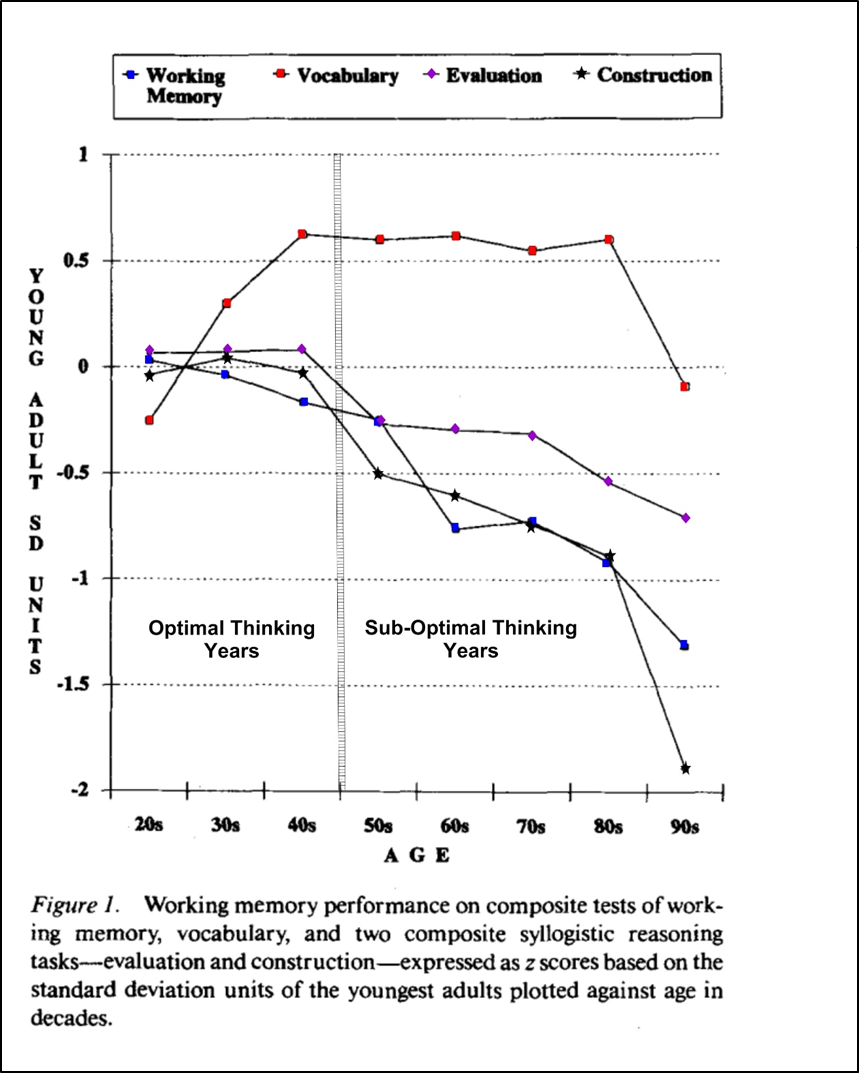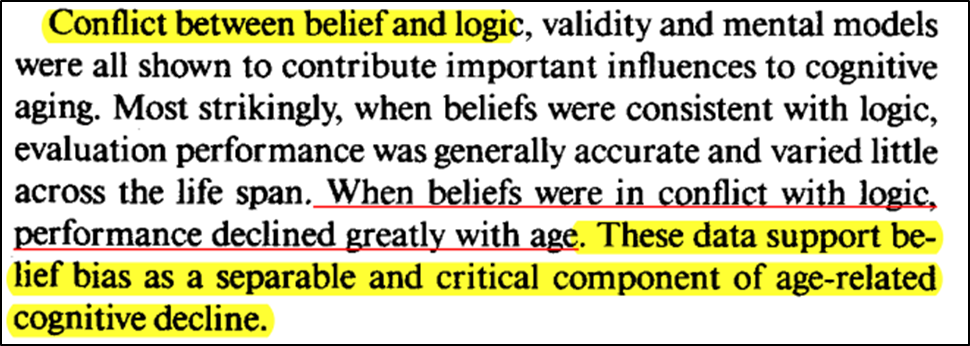The Decline of the Republic -- Could It All Be As Simple As This?
Well, us humans do believe that the thinking that we do is pretty important, after all.
I showed you the non-colorized version the graph below just a little while ago, but want to elaborate a bit on it. Again, due to the natural effects of aging, the average college-educated Westerner markedly starts to lose their ability to think effectively and accurately once they reach their 50s.

Now, making the reasonable assumption that in a republic like the US, the thinking of our elected federal officials has a direct effect on what happens nationally, it’s interesting to revisit the changes in median Congressional age and compare those changes to the emergence and duration of major events affecting the nation.
Remember that the US Congress is made up of two legislative bodies: the huge (“yuge”) House of Representatives, and the quite small two-senators-per-state US Senate. Because of those bodies’ relative sizes, the median age of the American policy makers depicted in the graph above is extremely heavily weighted towards the age of the US Representatives. However, splitting the ages of the two bodies apart suggests that — before 1981 —decisional errors generally tended to occur much more often in the deliberations[1] of the Senate. Now, of course, since the 1981 aging of the US House of Representatives well above the critical 50 year old threshold, both legislative bodies have apparently lost much of their former basic human decision-making competence.
One last remark — that landmark paper by Gilinsky and Judd, 1994, providing the original version of the topmost graph in this post — reports a ratchet effect of belief bias develops in people as they age. Accumulated beliefs interfere directly with current good reasoning. This aging-induced crippling of human thinking abilities no doubt helps explain such diverse problems as the gradual drop-off in the rate of innovation, personal and group failure to acknowledge and correct misjudgments and consequent erroneous actions (see COVID19), EV purchases, and project cost overrides:
PS: for one evident means of incrementally beating back the cognitive and other ravages of time, see:
And:
[1] Given the more laborious and difficult that thinking becomes for people as they age, perhaps the greater average and median age of the US Senate explains why the Senate is often perceived as being the more “deliberative” legislative body. Being necessarily slower-thinking by nature, they just can’t help being deliberative.






Republic? not since the civil war... or we could say spittering between a nation of laws and rights to an empire controlled fully by an elite getting its authority from majority rule or the appearance of majority rule.